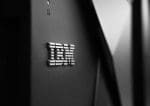In-Short
- AI-assisted tools improve skin cancer diagnosis, with a study showing increased sensitivity from 74.8% to 81.1%.
- AI technology encourages early cancer detection and promotes positive healthcare behavior changes.
- Bupa’s at-home dermatology service in Spain uses AI to assess skin lesions, aiding early intervention.
Summary of AI’s Role in Skin Cancer Prevention
Recent advancements in AI have significantly impacted the field of dermatology, particularly in the early detection and diagnosis of skin cancer. A 2024 study by Stanford Medicine has demonstrated that clinicians aided by AI tools show improved diagnostic sensitivity, which is particularly beneficial for non-dermatologists. This integration of AI into clinical practice is expected to become more widespread in the future.
With cancer rates increasing among younger populations, early detection is crucial for successful treatment. However, many individuals delay seeking medical advice due to various reasons. Research indicates that digital healthcare solutions, such as AI-powered phone apps for mole assessment, can significantly increase the likelihood of individuals seeking professional advice promptly.
Bupa has introduced an innovative at-home dermatology assessment service in Spain, named Blua, which allows customers to take high-resolution images of skin lesions and compare them against a vast database of skin pathology images using AI. This service aims to facilitate early detection and prompt follow-up with medical professionals if necessary.
The future of healthcare is leaning towards digital solutions that enable early detection and intervention. Services like Blua exemplify the potential of AI to transform healthcare by making it more accessible and convenient, ultimately leading to better health outcomes and potentially saving lives.
Further Reading
For more detailed information on AI’s impact on skin cancer prevention and the role of digital healthcare, please visit the original source.
Footnotes
Image credit: Nsey Benajah on Unsplash.










